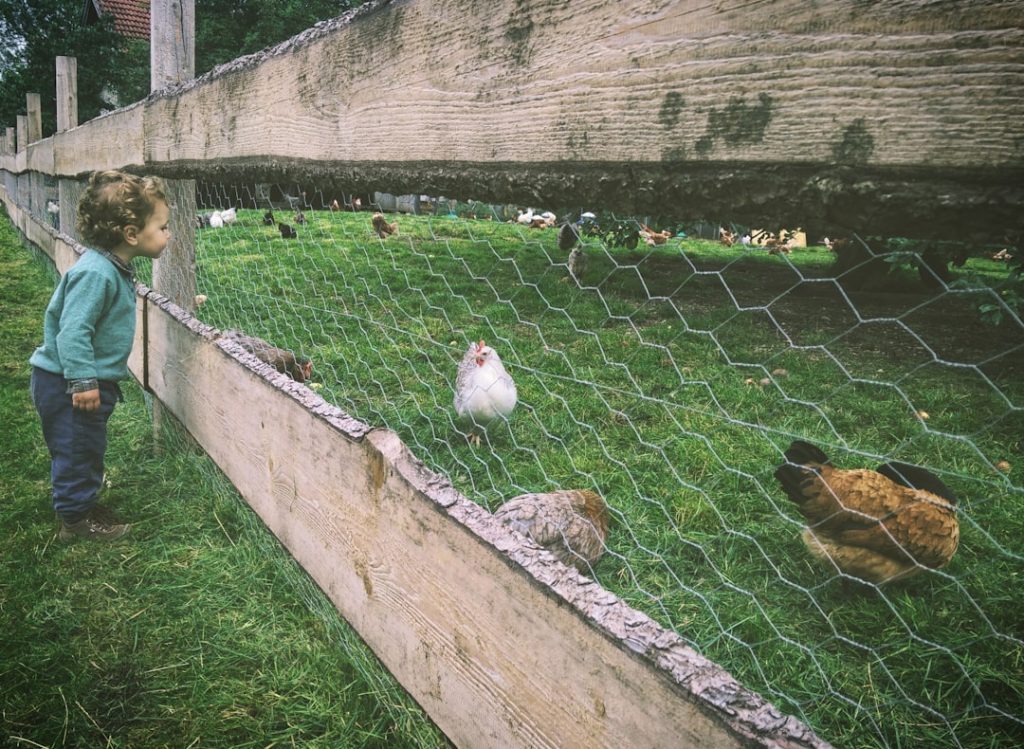Chickens are naturally curious and social animals with a strong foraging instinct. This behavior drives them to explore various areas of a property, including gardens and flower beds where they may cause damage. They are attracted to bright colors and shiny objects, which can further encourage their exploration of unwanted areas.
Understanding these natural behaviors is crucial for effectively deterring chickens. By recognizing what attracts chickens and motivates their actions, property owners can implement more targeted strategies to keep them away from specific areas. Chickens are creatures of habit, often returning to familiar food sources or comfortable roosting spots.
This tendency underscores the importance of consistency in deterrent efforts. A thorough understanding of chicken habits and behaviors enables the development of more effective long-term strategies for keeping them away from unwanted areas of a property.
Table of Contents
- 1 Creating Physical Barriers
- 2 Using Natural Deterrents
- 3 Implementing Visual Deterrents
- 4 Employing Scents and Smells
- 5 Training and Supervising Chickens
- 6 Seeking Professional Help
- 7 FAQs
- 7.1 What are some effective ways to keep chickens out of my vegetable garden?
- 7.2 What type of fencing is best for keeping chickens out of a vegetable garden?
- 7.3 What are some natural deterrents that can be used to keep chickens out of a vegetable garden?
- 7.4 How can I create physical barriers to keep chickens out of my vegetable garden?
- 7.5 Why is it important to provide alternative areas for chickens to forage?
Key Takeaways
- Chickens are naturally curious and will explore their surroundings, so understanding their behavior is key to preventing them from causing damage.
- Creating physical barriers such as fences and netting can effectively keep chickens out of certain areas and protect plants and property.
- Using natural deterrents like predator decoys, reflective objects, and noise makers can help keep chickens away from specific areas.
- Implementing visual deterrents such as scarecrows and motion-activated devices can startle chickens and discourage them from entering unwanted areas.
- Employing scents and smells like citrus, vinegar, or hot pepper can repel chickens and keep them from causing damage to gardens and landscaping.
- Training and supervising chickens can help prevent destructive behavior and ensure they stay within designated areas.
- Seeking professional help from a veterinarian or animal behaviorist may be necessary for persistent chicken behavior issues that cannot be resolved through other methods.
Creating Physical Barriers
Physical Barriers: A Simple Solution
One of the most effective ways to keep chickens out of unwanted areas is to create physical barriers that prevent them from accessing those areas. This can include installing fences or netting around your garden or flower beds, or using chicken wire to block off access to specific areas of your property. By creating physical barriers, you can effectively keep chickens from causing damage to your property without causing them harm.
Raised Beds and Containers: An Additional Layer of Protection
Another option for creating physical barriers is to use raised beds or containers for your plants. By elevating your plants off the ground, you can make it more difficult for chickens to access them. This can be a particularly effective strategy for protecting smaller plants or seedlings that may be more vulnerable to chicken damage.
Effective Protection Without Restriction
By creating physical barriers, you can effectively protect your property from chicken damage while still allowing the chickens to roam freely in other areas.
Using Natural Deterrents

In addition to physical barriers, there are also natural deterrents that can be used to keep chickens away from unwanted areas. One option is to use natural predators, such as dogs or cats, to help keep chickens at bay. The presence of a predator can help deter chickens from venturing into certain areas of your property, as they will be less likely to take the risk of being caught by a predator.
Another natural deterrent is the use of plants that chickens find unappealing. For example, planting strong-smelling herbs such as lavender or mint around your garden can help deter chickens from entering those areas. Chickens are also known to dislike the smell of citrus, so placing citrus peels or using citrus-based sprays around your property can also help keep them away.
By using natural deterrents, you can effectively keep chickens out of unwanted areas without causing them harm.
Implementing Visual Deterrents
Visual deterrents can also be effective in keeping chickens away from unwanted areas. One option is to use scarecrows or other visual deterrents that will startle the chickens and make them less likely to enter certain areas of your property. These visual deterrents can be particularly effective in protecting specific areas of your property, such as a vegetable garden or flower bed.
Another visual deterrent that can be effective in keeping chickens away is the use of reflective objects. Chickens are naturally attracted to bright colors and shiny objects, so placing reflective tape or hanging CDs in the areas you want to protect can help deter them from entering those spaces. By implementing visual deterrents, you can effectively keep chickens away from specific areas of your property without causing them harm.
Employing Scents and Smells
In addition to natural and visual deterrents, scents and smells can also be used to keep chickens away from unwanted areas. Chickens have a strong sense of smell, and there are certain scents that they find unappealing. For example, the smell of vinegar or garlic is known to repel chickens, so using these scents around your property can help keep them away from specific areas.
Another option is to use commercial repellents that are designed specifically for deterring chickens. These repellents often contain natural ingredients such as garlic or hot peppers, which are known to be unappealing to chickens. By employing scents and smells, you can effectively keep chickens away from specific areas of your property without causing them harm.
Training and Supervising Chickens

Intelligent Animals, Trainable Behavior
Chickens are intelligent animals, and with proper training, they can learn to avoid certain areas of your property. For example, you can use positive reinforcement techniques to train your chickens to stay out of specific areas, such as using treats to reward them for staying away from your garden.
Effective Supervision
Supervising your chickens can also be an effective way to keep them away from unwanted areas. By keeping an eye on your chickens and intervening when necessary, you can prevent them from causing damage to your property. This may involve using verbal commands or physical barriers to guide your chickens away from specific areas.
A Harm-Free Solution
By training and supervising your chickens, you can effectively keep them away from unwanted areas without causing them harm. This approach not only protects your property but also promotes a safe and healthy environment for your chickens.
Seeking Professional Help
If you have tried various deterrent methods and are still struggling to keep chickens away from unwanted areas, it may be time to seek professional help. There are professionals who specialize in animal behavior and can provide expert advice on how to effectively deter chickens from specific areas of your property. They may be able to offer additional strategies or techniques that you have not yet considered, and their expertise can be invaluable in finding a solution that works for your specific situation.
In some cases, it may also be necessary to seek the help of a professional pest control service. These professionals have the knowledge and experience to effectively address chicken infestations and can provide targeted solutions for keeping them away from your property. By seeking professional help, you can ensure that you are taking the most effective measures possible to keep chickens away from unwanted areas without causing harm to the animals.
In conclusion, there are many effective strategies for keeping chickens away from unwanted areas without causing harm to the animals. By understanding the behavior of chickens and implementing a combination of physical barriers, natural deterrents, visual deterrents, scents and smells, training and supervision, and seeking professional help when necessary, you can effectively protect your property from chicken damage while still allowing the animals to roam freely in other areas. With the right approach, you can find a solution that works for your specific situation and keep both your property and the chickens safe and secure.
If you’re looking for more tips on keeping chickens, you might be interested in this article on how to insulate a chicken coop. Insulating your coop can help keep your chickens comfortable and healthy, especially during the colder months.
FAQs
What are some effective ways to keep chickens out of my vegetable garden?
Some effective ways to keep chickens out of your vegetable garden include using fencing, creating physical barriers, using natural deterrents, and providing alternative areas for the chickens to forage.
What type of fencing is best for keeping chickens out of a vegetable garden?
A sturdy wire mesh or chicken wire fencing that is at least 4 feet tall and buried a few inches into the ground is effective for keeping chickens out of a vegetable garden.
What are some natural deterrents that can be used to keep chickens out of a vegetable garden?
Natural deterrents such as citrus peels, coffee grounds, cayenne pepper, and garlic can be scattered around the perimeter of the vegetable garden to deter chickens.
How can I create physical barriers to keep chickens out of my vegetable garden?
Physical barriers such as row covers, cloches, and netting can be used to protect specific plants or areas of the vegetable garden from chicken damage.
Why is it important to provide alternative areas for chickens to forage?
Providing alternative areas for chickens to forage can help redirect their attention away from the vegetable garden and provide them with a designated space to scratch and peck. This can help reduce their interest in the vegetable garden.
Meet Walter, the feathered-friend fanatic of Florida! Nestled in the sunshine state, Walter struts through life with his feathered companions, clucking his way to happiness. With a coop that’s fancier than a five-star hotel, he’s the Don Juan of the chicken world. When he’s not teaching his hens to do the cha-cha, you’ll find him in a heated debate with his prized rooster, Sir Clucks-a-Lot. Walter’s poultry passion is no yolk; he’s the sunny-side-up guy you never knew you needed in your flock of friends!







